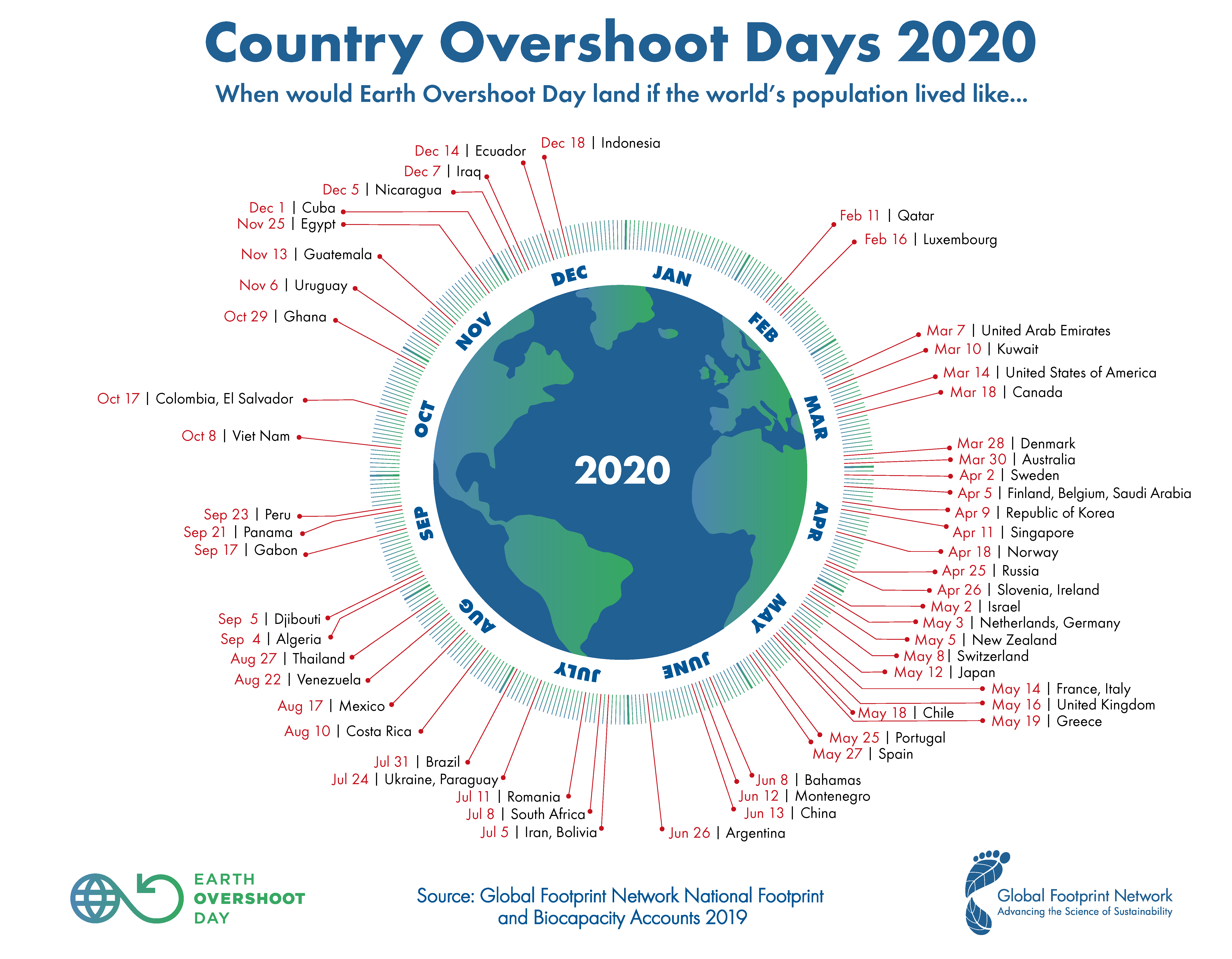Due to the Covid-19 lockdowns around the world, this year Earth Overshoot Day (EOD) 2020 falls on August 22, over three weeks later than in 2019. The main drivers were the carbon Footprint (reduced 14.5% from 2019) and the forest product Footprint (reduced 8.4% from 2019). According to the Global Footprint Network, this year’s contraction is welcomed, but the fact that it is accidental means it is not sustainable.
EOD is the calculated illustrative calendar date on which humanity’s resource consumption for the year exceeds Earth’s capacity to regenerate those resources that year. The term “overshoot” represents the level by which human population exceeds the sustainable amount of resources on Earth. When viewed through an economic perspective, EOD represents the day in which humanity enters environmental deficit spending. EOD is calculated by dividing the world biocapacity (the amount of natural resources generated by Earth that year), by the world ecological footprint (humanity’s consumption of Earth’s natural resources for that year), and multiplying by 365, the number of days in a year.
To back the future Earth Overshoot Days off, the #MoveTheDate movement was launched Because half of Earth’s biocapacity is used to feed us, food is a powerful lever to #MoveTheDate of Earth Overshoot Day. If we prevent food loss and food waste, and choose foods that are grown with agroecological and regenerative practices, we could make the difference and postpone Earth Overshoot Day in 2021. This goal is highly supported by the Dynaversity project, which is proposing conservation strategies using natural and agricultural biodiversity.










